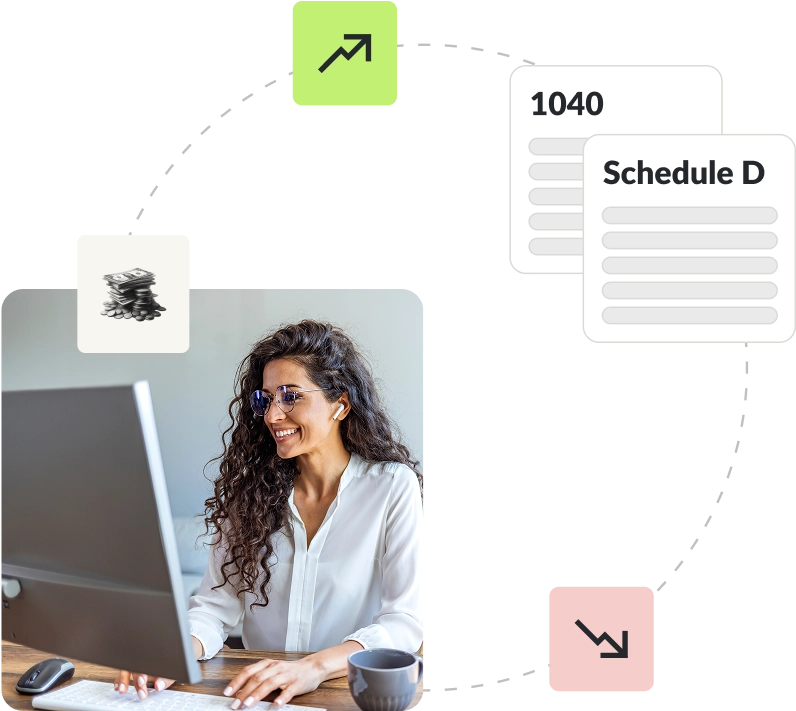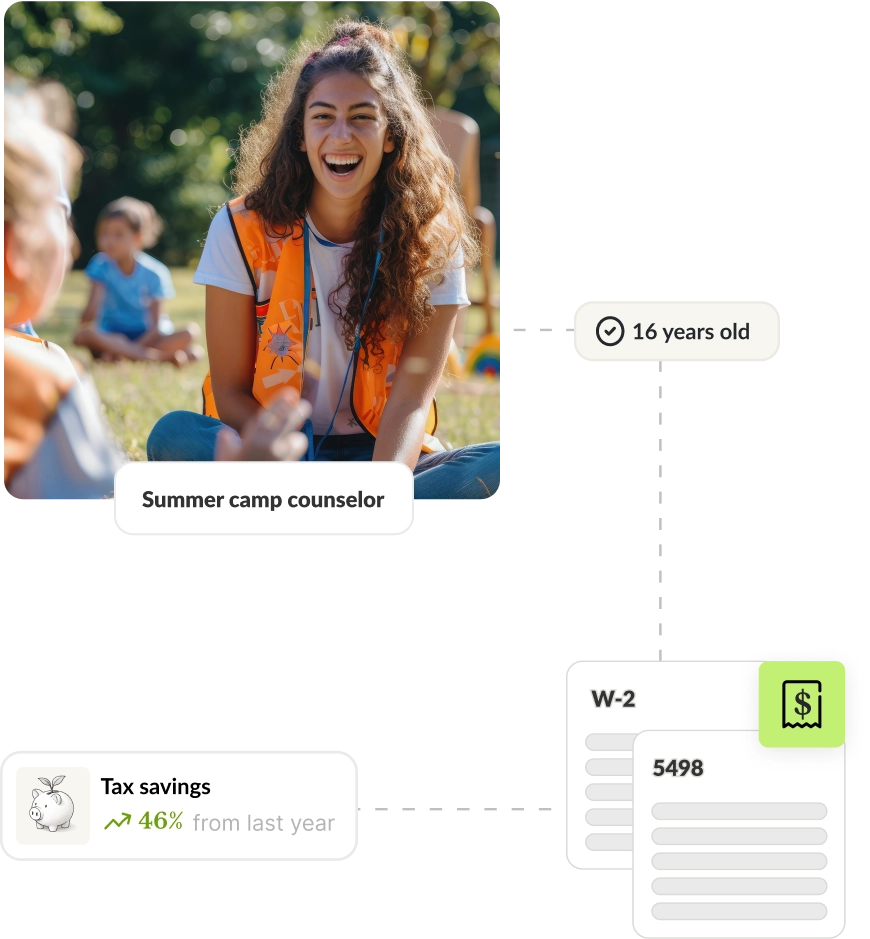2026 New Hampshire State Tax Deadlines
New Hampshire Individual income tax filing deadlines and extensions for 2026
New Hampshire does not impose a broad-based state Individual income tax, making it one of the most tax-friendly states for Individuals. However, New Hampshire does impose an Interest & Dividends Tax on specific types of investment income, and residents should be aware of business tax obligations.
New Hampshire business tax deadlines for 2026
Business Profits Tax deadlines and requirements
C Corporations and certain other business entities in New Hampshire must file and pay Business Profits Tax by April 15, 2027.
Filing requirements include:
- Complete Form NH-1120 (Corporate Profits Tax Return)
- File via NH TAP portal
- Payment must be made by April 15, 2027
- Mail submissions must be postmarked by the due date
Business Enterprise Tax deadlines for 2026
Businesses subject to Business Enterprise Tax must file by April 15, 2027.
Filing requirements include:
- Complete Form NH-1120B (Business Enterprise Tax Return)
- File via NH DRA portal
- Payment must be made by April 15, 2027
Extension to file business taxes in New Hampshire for 2026
The Extension Deadline for New Hampshire business tax returns is October 15, 2027. New Hampshire grants extensions in accordance with federal extension timelines. This is an extension to FILE, not an extension to PAY—payment is still due April 15, 2027.
Pass-through entities
New Hampshire does not impose a state income tax on pass-through entities, such as S Corporations and Partnerships. These entities file federal returns only, although they may be subject to the Business Enterprise Tax, depending on their activities and structure.
New Hampshire Individual tax considerations for 2026
Interest & Dividends Tax for 2026
New Hampshire imposes a 7.7% interest and dividends tax on certain investment income for Individuals.
Interest & Dividends Tax deadline
Interest & Dividends Tax returns are due April 15, 2027.
Required forms include:
- Form DP-10 (Interest & Dividends Tax Return)
Extension for Interest & Dividends Tax
The Extension Deadline is October 15, 2027, for interest and dividends tax returns.
Who must file Interest & Dividends Tax
Individuals must file if their interest and dividend income exceeds the filing threshold (typically $2,400 for single filers, $4,800 for joint filers).
No Broad-Based Income Tax
New Hampshire residents enjoy the benefit of no broad-based state income tax on wages, salaries, and most other income. However, they should be aware of:
- Federal tax obligations remain unchanged
- Interest & Dividends Tax on investment income
- Local property taxes (administered locally)
- Business tax obligations for business owners
- Estate and gift tax considerations at the federal level
What New Hampshire tax professionals need to know
New Hampshire's unique tax environment creates specific planning opportunities and compliance considerations. The state's "Live Free or Die" philosophy is reflected in its taxation system, which features minimal state-level income taxation but relies heavily on property taxes and business taxes.
Electronic filing requirements
New Hampshire has implemented electronic filing systems for taxpayers:
- C Corporations should file electronically through the NH DRA portal
- Individuals with Interest & Dividends Tax obligations can file electronically
- Business tax returns can be processed more efficiently through electronic systems
- Professional preparers must use approved software vendors
Unique New Hampshire tax features for 2026
New Hampshire offers several distinctive tax features, including:
- 7.7% Interest & Dividends Tax on investment income above thresholds
- No broad-based income tax on wages, salaries, and business income
- Business Profits Tax on corporate and business income
- Business Enterprise Tax on the business enterprise value tax base
Interest & Dividends Tax Planning
New Hampshire's Interest & Dividends Tax creates specific planning opportunities:
- Tax applies only to interest and dividends, not capital gains
- Thresholds provide exemptions for modest investment income
- Planning around the thresholds can minimize tax liability
- Important for retirees and investors with significant investment income
Business Tax Environment
New Hampshire's business tax structure includes:
- Business Profits Tax is similar to corporate income tax in other states
- Business Enterprise Tax based on the business enterprise value tax base
- No franchise tax or other entity-level taxes
- Competitive business tax environment compared to neighboring states
Residency Planning Advantages
New Hampshire's tax structure makes it attractive for:
- High-income Individuals earning wages and salaries
- Business owners seeking to minimize state income tax
- Retirees with pension and retirement account income (not subject to Interest & Dividends Tax)
- Individuals seeking to reduce state tax burden while remaining in New England
Multi-State Tax Planning
New Hampshire residents working in other states must consider:
- Other states' tax filing requirements for nonresidents
- Reciprocity agreements with neighboring states
- Credit calculations in other states (limited benefit due to no NH income tax)
- Potential state tax advantages of New Hampshire residency
Property Tax Considerations
New Hampshire relies heavily on local property taxes:
- Local property tax rates vary significantly by municipality
- Important factor in overall tax burden analysis
- Property tax considerations for business location decisions
- Educational funding through property taxes
Professional tax guidance
Even with New Hampshire's straightforward income tax structure, complex multi-state situations and business tax requirements may necessitate professional attention. Consulting with qualified tax professionals through an accounting firm directory can help ensure compliance and identify available tax-saving opportunities.
Sources
Don't miss State tax deadlines—Join Instead
State tax deadlines are approaching fast. While New Hampshire has no broad-based income tax, interest and dividend tax, and business tax obligations still require attention.
Instead's AI-driven platform does the heavy lifting for you—automatically identifying tax strategies, monitoring your accounts for save opportunities, and ensuring you claim every deduction to which you're entitled. Generate comprehensive reports that make tax planning simple. No more guesswork, no more missed opportunities.
The material discussed on this page is meant for general illustration and/or informational purposes only and is not to be construed as investment, tax, or legal advice. You must exercise your own independent professional judgment, recognizing that advice should not be based on unreasonable factual or legal assumptions or unreasonably rely upon representations of the client or others. Further, any advice you provide in connection with tax return preparation must comply in full with the requirements of IRS Circular 230.
Please note that if any due date falls on a federal or state holiday or weekend, it may be adjusted to the next business day. Always verify current deadlines with the appropriate tax professional and authorities.
Looking for a different year?

























